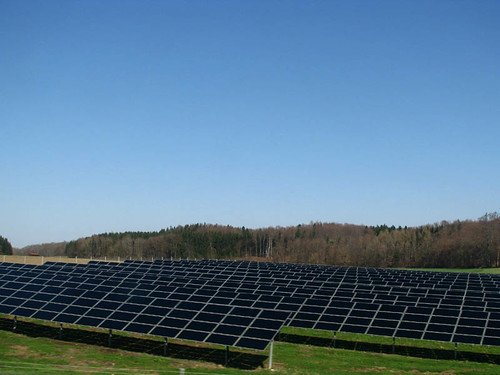Germany has long been at the forefront of environmental policies and sustainable development. In recent years, the country has intensified its commitment to green energy, aiming to transition entirely to renewable energy sources. But is this ambitious target within reach? This article explores the various facets of Germany’s green energy revolution, the challenges it faces, and its path toward achieving 100% renewable energy.
History of Germany’s Green Energy Initiatives

Germany’s journey toward renewable energy began in the early 1990s with the introduction of policies incentivizing the adoption of cleaner energy sources. The Renewable Energy Act of 2000 marked a significant milestone, setting the stage for widespread investment in solar, wind, and biomass energies. Over the years, Germany has consistently led global efforts in reducing carbon emissions and promoting sustainable energy solutions.
The Energiewende Policy

The term “Energiewende,” meaning “energy transition,” encapsulates Germany’s strategic plan to shift from fossil fuels and nuclear energy to renewable sources. This policy aims to reduce greenhouse gas emissions by 80-95% by 2050, compared to 1990 levels, and achieve a nearly carbon-neutral economy. Energiewende has inspired other nations to adopt similar strategies, further solidifying Germany’s role as a leader in the green energy movement.
Current Renewable Energy Sources in Germany

Germany has made significant strides in diversifying its energy portfolio. Wind power, particularly offshore, leads as the largest renewable energy contributor, followed by solar and biomass. Hydroelectric power, although less prevalent due to geographical limitations, also plays a part in the country’s energy mix. Together, these sources accounted for more than 40% of Germany’s total electricity consumption by the end of 2020.
The Role of Technology in Energy Transition

Advancements in technology have been crucial in enabling Germany’s energy transition. Cutting-edge innovations in solar panel efficiency, wind turbine design, and energy storage systems have enhanced the reliability and performance of renewable energy infrastructure. As technology continues to evolve, these improvements will be key in overcoming hurdles such as energy storage and grid integration.
Challenges Facing the 100% Renewable Goal

Despite Germany’s progress, several challenges remain in achieving 100% renewable energy. Grid stability is a major concern, as renewable sources like wind and solar are intermittent and require consistent energy storage solutions. Additionally, the phase-out of nuclear power by 2022 and coal by 2038 poses further challenges in meeting energy demands without disrupting supply.
Financing the Green Energy Transition

A successful transition to renewable energy requires substantial financial investments. The government has provided significant subsidies and incentives to support this shift, but questions regarding the financial feasibility and economic impact of such investments persist. Ensuring affordability and equity for consumers is an important consideration in financing this transition.
Public Perception and Support

Public support is vital for the success of green energy policies. Surveys indicate that a large majority of Germans approve of renewable energy policies and are willing to bear higher costs for cleaner energy. Engagement and education efforts play a critical role in maintaining this support and encouraging individual and community involvement in sustainability initiatives.
Impact of Policy on Industry and Employment

The renewable energy sector in Germany has generated numerous economic opportunities, with significant job growth in engineering, manufacturing, and research. As the country phases out coal and nuclear industries, ensuring a fair transition for workers through retraining and job placement programs is an ongoing challenge.
International Collaboration and Influence

Germany’s green energy policies have influenced international climate agreements and have made the country a leader in global environmental diplomacy. Collaborative efforts with other nations and organizations have helped share technological advancements and expertise, leveraging global synergy to meet climate goals.
Germany’s Path Forward: Future Prospects

Looking ahead, Germany’s path to 100% renewable energy involves continuous improvement in energy efficiency and the integration of emerging technologies like smart grids and artificial intelligence. These innovations promise to enhance energy distribution and consumption, bringing the renewable energy goal within reach.
The future of Germany’s energy transition depends on effective policy implementation, innovation, and collaboration. While challenges persist, Germany’s relentless pursuit of a green energy future demonstrates the potential for transformative change on a global scale.
Conclusion

Germany’s green energy revolution is a testament to the nation’s commitment to sustainability and innovation. While achieving 100% renewable energy by the target dates may be ambitious, the progress made thus far is commendable. With continued support, technological advancements, and international cooperation, Germany stands as a beacon of possibility for a sustainable global future. The journey may be challenging, but the rewards—clear skies, clean energy, and a sustainable planet—are worth pursuing.



